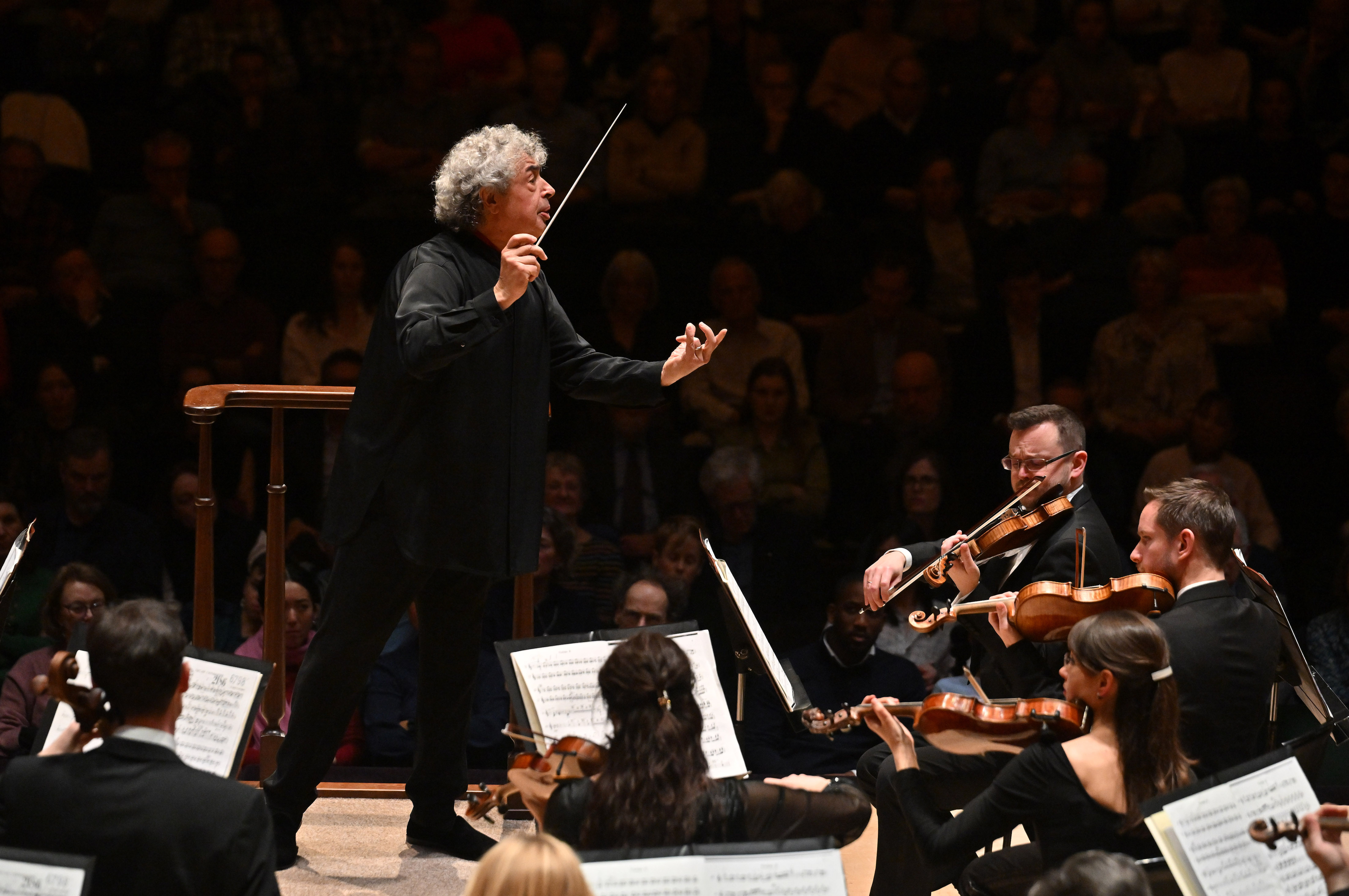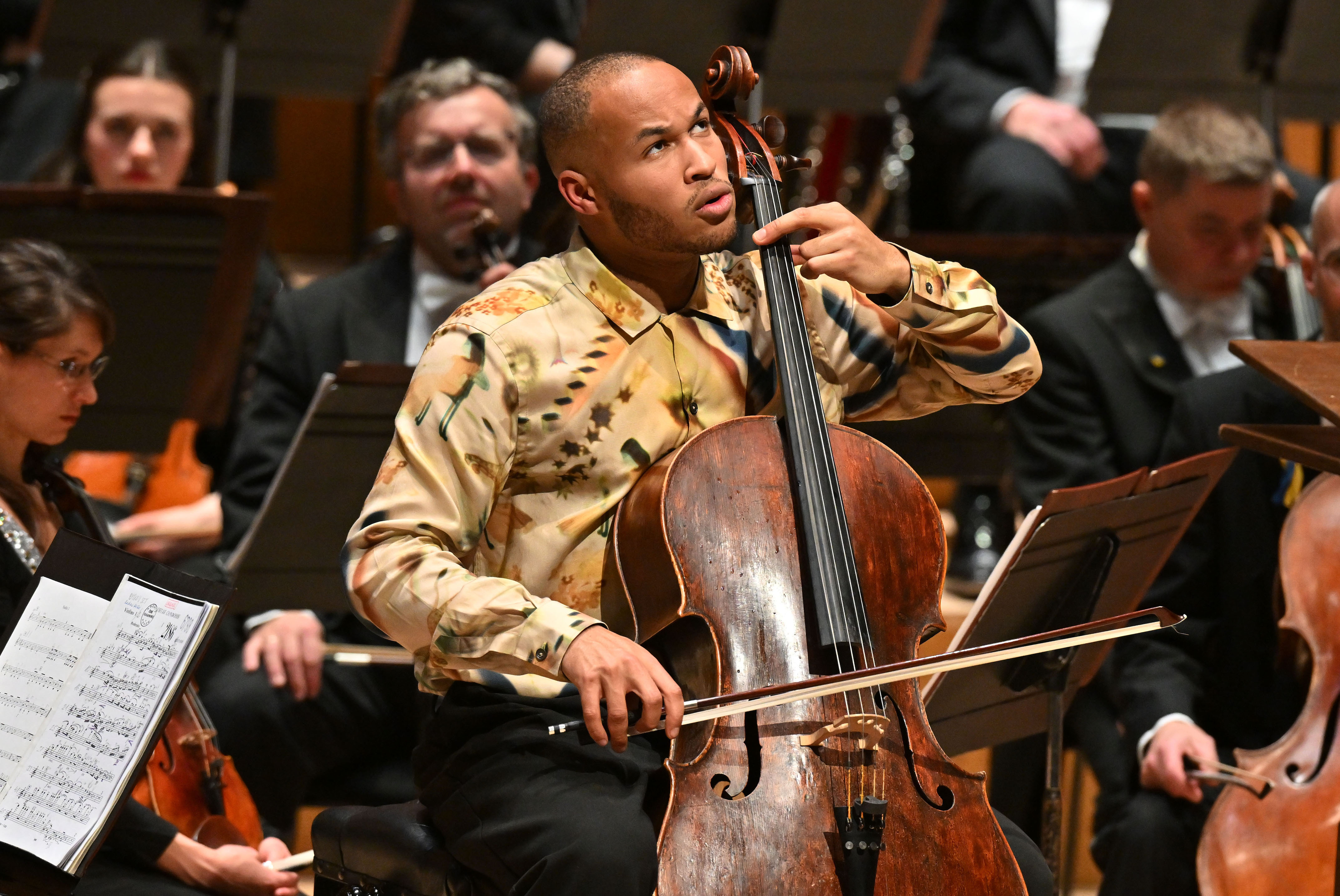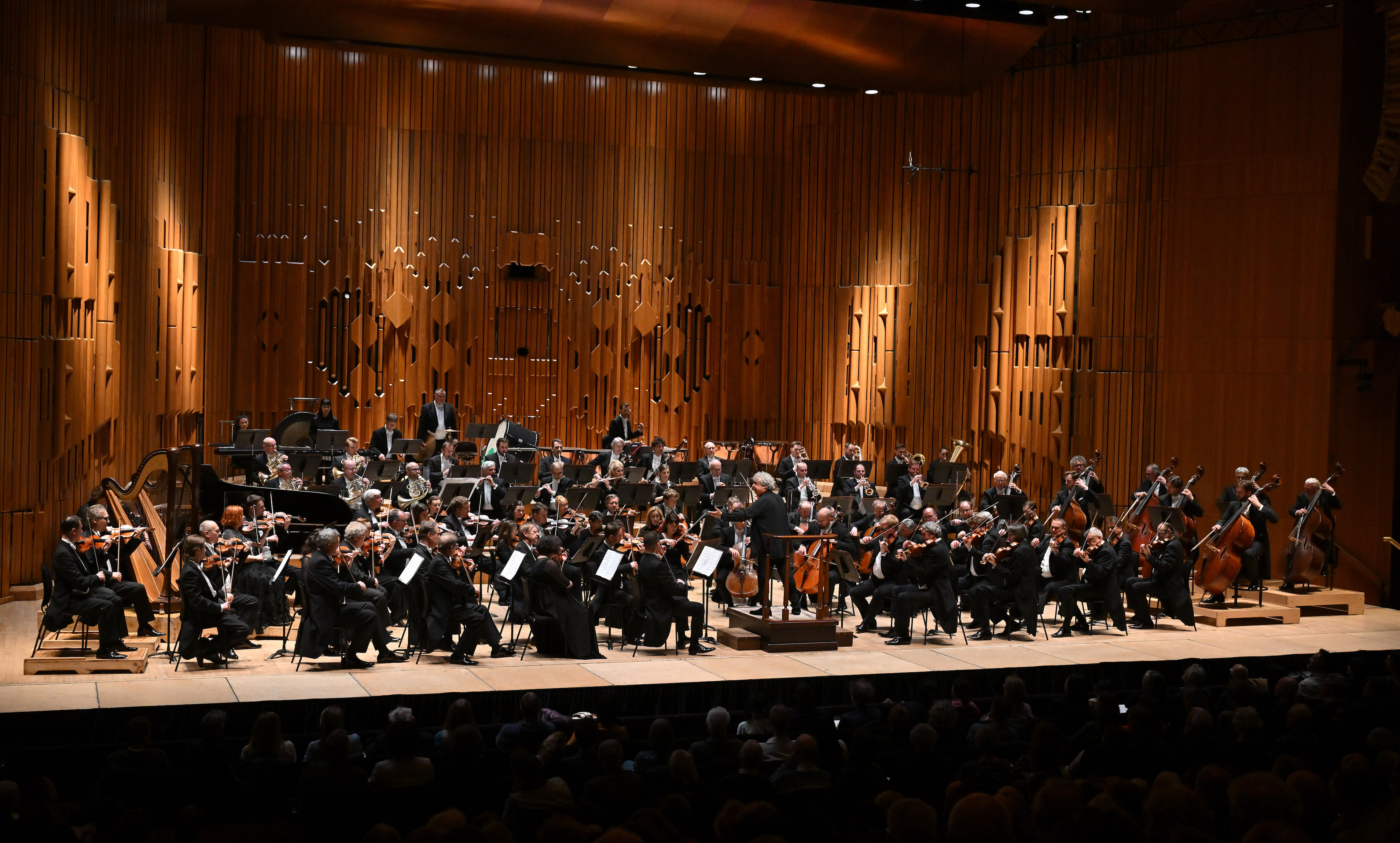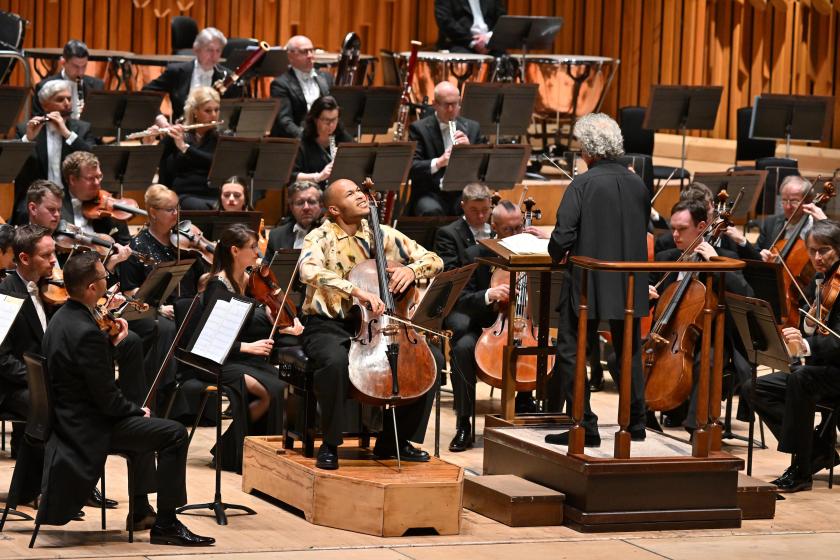Exactly half a century ago, Semyon Bychkov fled the USSR for the United States as he sought to swap tyranny for liberty. Last night, in a world that feels utterly different yet even more terrifying, the great conductor turned the stellar talents of his Czech Philharmonic Orchestra to the music of Dmitri Shostakovich: both a victim, and a troubled celebrant, of the searing Soviet history he endured.
At the Barbican (a date on the Czechs’ current European tour), we inevitably felt the weight of the past that conductor and orchestra carry, in a programme that paired Shostakovich’s First Cello Concerto – with Sheku Kanneh-Mason as soloist – and his Fifth Symphony. Facile critics might have predicted that the presence of Kanneh-Mason, playing the work that Shostakovich originally wrote for Mstislav Rostropovich in 1959, might somehow have lightened the load or diluted the legacy.
Not at all: the beloved young virtuoso may not yet command the range and force of the work’s dedicatee (could anyone?) but the idiomatic inwardness of his playing meant that this never, for a single bar, felt like the touristic approach of a lightweight or a latecomer. Authenticity in performance doesn’t descend like DNA, although Bychkov (pictured below) governs this Russian terrain with intimate authority. It has to be new-minted every time.  That meant, in the concerto’s opening Allegretto, reining in on the sumptuously full, round sound the Czechs so readily spin in favour of the angular, acidic harmonies that the cello strives to emulate, then to overcome. I had worried that Kanneh-Mason’s serene, polished, rather patrician, line might smooth over the deliberately rough orchestral edges. But Bychkov brought out the bite and needle of the cello’s exchanges with the mid-size, trouble-making band.
That meant, in the concerto’s opening Allegretto, reining in on the sumptuously full, round sound the Czechs so readily spin in favour of the angular, acidic harmonies that the cello strives to emulate, then to overcome. I had worried that Kanneh-Mason’s serene, polished, rather patrician, line might smooth over the deliberately rough orchestral edges. But Bychkov brought out the bite and needle of the cello’s exchanges with the mid-size, trouble-making band.
Cellist and this work’s sole horn (the superb Jan Voboril) began a dialogue – tetchy, rivalrous and rapt by turns – that bloomed when, in the Moderato, a mellow lyricism gains the upper hand, and the horn’s tone seems to turn from tin to gold. Here Kanneh-Mason (pictured below) had no need to stint on the wistful elegance he commands so well. The cello’s spun-silk singing voice – and its eerie, otherworldly harmonics – discovered partners in the equally refined oboes, clarinets and bassoons, along with a telling cameo from Karolina Pancernaite’s celeste.
In the solo meditations of the Cadenza, Kanneh-Mason’s brooding, introspective lines sometimes seemed to lose forward momentum in their mystic meander – but only, perhaps, so that Bychkov’s ferocious orchestral accelerando could then ambush and thrill. Against the jittering, skittering dance of the Finale, the cello with its chunky chords and spectacular runs gloriously held its own: from my seat, the balance of soloist and accompaniment sounded fine. Feeling, and meaning, enriched the virtuosity. The notorious difficulty of the solo part, serenely mastered here, never felt like a pretext for an exhibition piece. And Kanneh-Mason’s growing interpretative maturity found in Bychkov the perfect guide and ground. Restored to full battle strength for Shostakovich’s Fifth Symphony, Bychkov and his legions trod the work’s quivering tightrope between irony and affirmation with stupendous aplomb. Is the composer’s 1937 triumph “a Soviet artist’s response to justified criticism”, after Stalin’s cultural cronies had slated him for formalism of the Fourth, or an ecstatic but anguished sabotage of official, “optimistic” art? For all their deep-dyed indigenous romanticism, the Czech Phil sound absolutely at home with the sarcasm and subversion that flickers and darts through this score.
Restored to full battle strength for Shostakovich’s Fifth Symphony, Bychkov and his legions trod the work’s quivering tightrope between irony and affirmation with stupendous aplomb. Is the composer’s 1937 triumph “a Soviet artist’s response to justified criticism”, after Stalin’s cultural cronies had slated him for formalism of the Fourth, or an ecstatic but anguished sabotage of official, “optimistic” art? For all their deep-dyed indigenous romanticism, the Czech Phil sound absolutely at home with the sarcasm and subversion that flickers and darts through this score.
The strings (now richly layered and nuanced) spotlit the melancholy that undercuts the sporadic bombast of the Moderato first movement, with Bychkov achieving spacious, open textures that allowed islands of instrumental excellence all around the stage to shine. From fine-grained, deep-chested horns and mightily menacing trombones to ravishing flutes (led by Andrea Rysová), Bychkov built up the colour layers of his epic palette with precision and panache. His tutti climaxes felt properly explosive but never just grandiose, while the bleak coda (even in this mood-dampening hall) chilled and haunted.
In the scherzo, with its bittersweet, silly-serious Mahlerian ländler dances, some properly accented playing – horns, flutes, bassoons and a delicious solo from leader Jan Fišer – enhanced the edge and bounce of Bychkov’s direction. The movement teetered deliciously between humour and heartbreak, and then, in the Largo, the multiply divided strings expanded the sorrowful ardour of some lost late-Beethoven quartet to orchestral size.  Bychkov let this supremely contemplative, elegiac music breathe and linger, with finely controlled piano stretches, some exquisite woodwind passages (not least Jana Brožková’s oboe) and sprinkles of stardust from the pair of harps (Jana Boušková, Barbara Pazourová). As for the supposedly heroic finale, Bychkov and the band threw in everything – except vulgar excess. Lukáš Besuch’s trombones, Stanislaw Masaryk’s trumpets and – memorably – Michael Kroutil’s timpani all drove the victory march onwards with an an electrifying propulsive energy.
Bychkov let this supremely contemplative, elegiac music breathe and linger, with finely controlled piano stretches, some exquisite woodwind passages (not least Jana Brožková’s oboe) and sprinkles of stardust from the pair of harps (Jana Boušková, Barbara Pazourová). As for the supposedly heroic finale, Bychkov and the band threw in everything – except vulgar excess. Lukáš Besuch’s trombones, Stanislaw Masaryk’s trumpets and – memorably – Michael Kroutil’s timpani all drove the victory march onwards with an an electrifying propulsive energy.
Whether we cheer this hammering fortissimo onrush or recoil in horror depends on time and taste. Just now, this façade of triumphalism can feel especially hollow, but it still needs total commitment and unerring control. Bychkov and his forces gave it that, and more. And if the armour-plated celebration that the ever-doubting Shostakovich managed to manufacture left us uneasy, a gorgeously-played encore will have healed unquiet souls: none other than “Nimrod” from Enigma Variations. Bychkov, and his throbbing, yearning strings, made Elgar sound gloriously – even natively – Bohemian.














Add comment